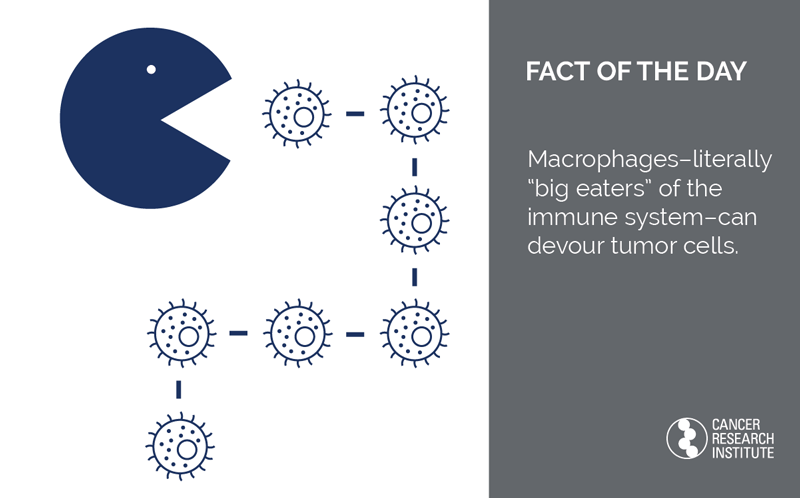
Macrophages—literally the “big eaters” of the immune system—can devour cancer cells.
Macrophages (Greek for “big eaters”) are innate immune cells that are capable of physically ingesting damaged or diseased cells through a behavior called phagocytosis (cell-devouring process).
However, sometimes tumors are able to protect themselves by manipulating macrophages—hijacking them into helping cancer spread. Fortunately, immunotherapies have been developed to target macrophages and make sure they stay on the right side of the fight against cancer.
For instance, cancer cells can tell macrophages “don’t eat me!” by expressing the CD47 receptor on their surfaces. To overcome that, immunotherapies that block CD47 have been developed and are currently being evaluated in clinical trials. Macrophages can also aid tumor growth and metastasis, the process in which a tumor spreads to other organs, and doctors investigating effective approaches to target these behaviors, too.
The following CRI-funded scientists are exploring the complex relationship between macrophages and cancer, as well as identifying and testing promising new targets to enhance their anti-cancer activity with immunotherapy:
Image credit: Cancer Research Institute